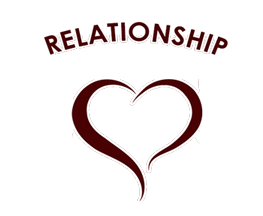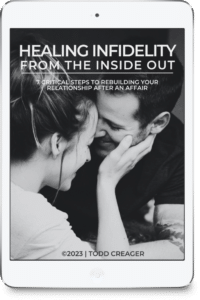When Silence Becomes Punishment: Why Withdrawal Hurts More Than Words
Sometimes the most painful thing in a relationship isn’t what gets said. It’s what doesn’t get said. The cold silence. The turned back. The partner who’s physically there but emotionally gone.
You know what I’m talking about.
You’ve been hurt, so you pull back. You get cool. You don’t respond right away. Maybe you tell yourself it’s not intentional, that you just need space. But here’s what most people don’t realize: that quiet withdrawal?
It’s often a cry for closeness. A way of saying “I’m hurting” without knowing how to say it directly.
What you need to know right now: Silent withdrawal is usually self-protection, not revenge. But to your partner, it feels like punishment.
The good news? You can repair connection without saying a word—and sometimes that’s more powerful than any conversation.
But here’s what most people miss:
→ Staying physically present (even when you’re still upset) sends a completely different message than leaving the room
→ Your partner can’t fight for you if you’ve disappeared—emotionally or physically
→ The body repairs faster than words sometimes, and that’s okay
I’m Todd Creager. For over 40 years, I’ve worked with couples who are stuck in these silent standoffs. What I’ve learned is that most partners don’t want to punish—they want to feel safe again.
And there are ways to signal “I’m still here” without having to explain, defend, or solve anything in that moment.
What’s Really Happening When You Withdraw
Here’s the pattern I see constantly in my practice. One partner says or does something that hurts. Maybe they were dismissive. Maybe they got defensive when you tried to share something vulnerable. Maybe they humiliated you in front of others.
Your first instinct? Protect yourself. So you withdraw. You become unavailable. You give off the vibe: “You don’t get access to me until I feel better.”
I had a client tell me once: “I didn’t slam doors or scream. I just made him feel the way I felt—small and invisible.”
What she wanted, desperately, was for him to fight for her. To notice. To come after her and make it right. But all he did was pull further away until she tried something completely different.
The thing is, she wasn’t trying to be mean. Neither are you when you do this. You’re trying to survive the pain. But withdrawal creates a terrible cycle: You pull away to protect yourself. Your partner feels punished and pulls away too. Now you’re both alone, and nobody knows how to get back.
The Real Story: Ken and Terry
Let me tell you about Ken and Terry because their story shows up in some version in almost every couple I work with.
Whenever Terry brought up something emotional, Ken would do what a lot of partners do. He’d shoot holes in what she was saying. Try to give his reasons why she wasn’t correct. He’d get defensive, basically.
Terry eventually got so tired of being minimized that she just stopped. She stopped trying to connect. She stopped bringing things up. She became what I call “politely distant.”
When they came to see me, Terry said, “I just don’t try anymore.” And Ken said, “I feel all alone in this relationship.”
Ken didn’t quite understand what was happening. There were a lot of things he did well in the relationship—like a lot of partners, he wasn’t all bad. He just wasn’t aware of the pain his defensiveness created. And Terry wasn’t so tuned into the pain Ken felt when she pushed him away.
See, her pushing away was self-protection. His defensiveness was self-protection too. Two people trying to protect themselves, both ending up hurt.
The Moment Everything Changed
After we worked together for a bit, something happened. They had another fight. Terry caught herself at the exact moment she wanted to punish Ken by withdrawing.
Instead of icing him out completely, she did something brave. She sat on the couch near him. Back turned—because she was still struggling, still hurt—but closer. She didn’t say a word. She just didn’t leave.
Later she told me it was the hardest thing she’d ever done. Just sitting there, still upset, still not ready to talk, but present.
That night, Ken reached out. They had their first honest, soft moment in weeks, maybe months.
Why Physical Presence Matters More Than You Think
We’ve been taught that conflict needs to be solved through talking. That if you’re not communicating verbally, you’re not fixing anything.
But sometimes connection starts in the body first.
The silent cold shoulder feels like control. Silent presence feels like repair.
I’m going to say that again because it’s important: The silent cold shoulder feels like control, but silent presence feels like repair.
When you can stay in the room—not to punish, but to witness—you tell your partner something crucial: “I’m still here. I’m still open.” That’s where healing begins.
Your nervous system speaks to your partner’s nervous system. When you leave the room or turn away completely, their nervous system reads: “Threat. Abandonment. Danger.” When you stay present, even silently, their nervous system gets a different message: “Still safe. Still connected. We’ll get through this.”
What This Looks Like in Real Life
You don’t have to be perfect at this. You don’t have to fake being okay when you’re not. Here’s what I mean by “silent presence”:
Scenario 1: After a fight in the kitchen
→ Old pattern: Storm off to the bedroom, close the door, don’t come out for hours
→ New pattern: Move to the living room, sit where your partner can see you, let yourself calm down there
Scenario 2: When your partner says something dismissive
→ Old pattern: Give them the cold shoulder for days, minimal responses, make them feel your displeasure
→ New pattern: Take space if you need it, but stay in proximity. Sit in the same room reading. Be near them during dinner even if you’re quiet.
Scenario 3: When you’re hurt but can’t find words
→ Old pattern: Shut down completely, refuse touch or eye contact, leave them guessing
→ New pattern: Let your body stay soft even when your words aren’t ready. A hand on their shoulder. Sitting close on the couch. Small signals that say “I’m upset, but I’m not gone.”
Why This Works When Talking Fails
I’ve seen couples talk themselves in circles for hours. They explain, defend, counter-argue, explain again. Both people leave exhausted and more disconnected than before.
Here’s what I’ve learned from 40+ years of working with couples: Your body can say “I’m committed to us” faster than your mouth can sometimes.
When you’re hurt, your thinking brain isn’t working right anyway. You’re flooded. Your partner is flooded. More words usually means more misunderstanding.
But if you can stay near each other? If you can let your body communicate “I’m not abandoning you even though I’m upset”? You’re doing repair work without needing perfect words.
The Common Mistakes People Make
Mistake 1: Confusing presence with pretending you’re okay
Staying present doesn’t mean acting like nothing happened. Terry stayed on the couch with her back turned. She was clearly still upset. But she was there.
Mistake 2: Using physical presence as a manipulation
Some people stay in the room but make sure their partner feels their anger. Heavy sighs. Eye rolls. That’s not presence—that’s proximity punishment. Your partner can tell the difference.
Mistake 3: Expecting instant results
Terry told me sitting on that couch was the hardest thing she’d ever done. It won’t feel natural at first. Your instinct is to leave, to protect, to punish a little. That’s normal. You’re rewiring decades of patterns.
Mistake 4: Thinking this replaces all verbal communication
This isn’t about never talking. You’ll still need conversations. But those conversations go better when you’ve stayed connected through the worst moments.
What Your Partner Experiences When You Stay
I ask betrayed partners and hurt partners all the time: “What does it feel like when your partner withdraws?”
They say things like:
→ “Like I don’t matter”
→ “Like I’m being erased”
→ “Like they’ve already left the relationship mentally”
→ “Terrifying—I don’t know if they’re coming back”
Then I ask: “What does it feel like when they stay present, even when upset?”
Completely different answers:
→ “Like we’re going to be okay”
→ “Like they’re still fighting for us”
→ “Like there’s hope”
→ “Safe—even though we’re struggling”
Your partner isn’t reading your mind. They’re reading your body, your proximity, your availability. When you stay, even silently, you’re saying something important.
How to Start Practicing Silent Presence
Next time you want to pull away, ask yourself: “What do I really want right now?”
If the honest answer is “I want to punish them” or “I want them to feel what I feel,” that’s information. That’s hurt talking. You can acknowledge that feeling without acting on it.
If the honest answer is “I want to feel safe” or “I need space to calm down,” then try this:
Step 1: Take the space you need, but keep your partner in sight. Move to another part of the room instead of another floor.
Step 2: Let your body relax as much as you can. Uncross your arms. Soften your shoulders. You’re still upset—that’s okay—but your body can signal “I’m not dangerous to you right now.”
Step 3: When you’re ready (even if it’s just 1%), do something small. Sit near them like Terry did with Ken. Make eye contact for a second. Touch their hand as you walk by.
You’re not saying “everything’s fine.” You’re saying “I’m still here.”
What About When Your Partner Is the One Withdrawing?
This is painful. You’re on the receiving end of the silent treatment, and it feels terrible.
Here’s what not to do: Chase them down demanding they talk. Force proximity. Get angry about their anger.
Here’s what can help: Give them space, but stay nearby. Say something like “I can see you’re upset. I’m going to be in the living room when you’re ready.” Then actually be there.
Don’t disappear into your phone. Don’t leave the house. Be genuinely available.
Sometimes the person who’s withdrawing needs to see that you’re not going anywhere. That their silence isn’t driving you away. That’s what Ken did for Terry that night—he was there when she was ready.
The Pattern That Changes Everything
I’ve watched this pattern transform relationships:
Old cycle: Fight → Withdraw → Partner withdraws → Both feel abandoned → Resentment builds → Next fight is worse
New cycle: Fight → Feel the urge to withdraw → Choose presence instead → Partner feels safe → Small repair moment → Next fight is easier
You don’t fix everything in one night. But you stop making things worse. And you start building a different habit—a habit of staying instead of leaving.
When Silent Presence Isn’t Enough
Look, I teach verbal repair tools too. Sometimes you need words. Sometimes you need to apologize clearly, or hear your partner’s pain, or work through something complex.
But what I see couples overlook constantly is that the nonverbal repair tools can be more important. They create the safety that makes verbal repair possible.
If you’ve been in a pattern of withdrawal and punishment for months or years, sitting on that couch with your back turned might be 90% of the work in that moment. The conversation can come later, when you’re both regulated.
Why This Feels So Hard
Staying present when you’re hurt goes against your survival instinct. Your body wants to flee or fight. Silent presence is neither—it’s something more difficult. It’s staying vulnerable when every cell in your body is screaming to protect yourself.
That’s why Terry said it was the hardest thing she’d ever done.
But here’s what I’ve learned: The hard thing is also the thing that works. The easy thing—withdrawing, shutting down, giving the cold shoulder—feels like self-care in the moment. But it destroys connection over time.
The hard thing—staying present, staying soft, staying available—feels scary and vulnerable. But it builds the relationship you actually want.
What Happens Next
You’re not going to get this perfect. You’ll have fights where you still withdraw. Where you still give the cold shoulder. That’s part of being human.
But if you can catch yourself even once a month and choose presence instead? You’re changing the pattern. You’re teaching your nervous system and your partner’s nervous system that conflict doesn’t mean abandonment.
That one moment on the couch changed everything for Ken and Terry. Not because it solved their communication issues overnight. But because it showed both of them that connection was still possible, even in pain.
The Real Question
So the next time you feel that urge to pull away, to get cool, to make your partner feel your hurt through your absence, ask yourself:
“What do I really want right now?”
If the answer is “I want us to be okay,” then try something different. Try staying. Try letting your body say “I’m still here” when your words can’t.
Sit near them. Let your presence speak. Don’t leave the room. Don’t leave the relationship, even for a moment.
Because sometimes the most powerful thing you can say is nothing at all—as long as you’re still there to not say it.
About Todd Creager: For over 40 years, I’ve helped couples identify the subtle disconnect patterns that keep love at arm’s length.
I guide them back to intimacy using both verbal and nonverbal repair tools—because sometimes the body knows how to heal before the words come.
If you’re struggling with withdrawal patterns in your relationship, you’re not alone, and there are ways back to connection that don’t require perfect communication. They just require presence.






